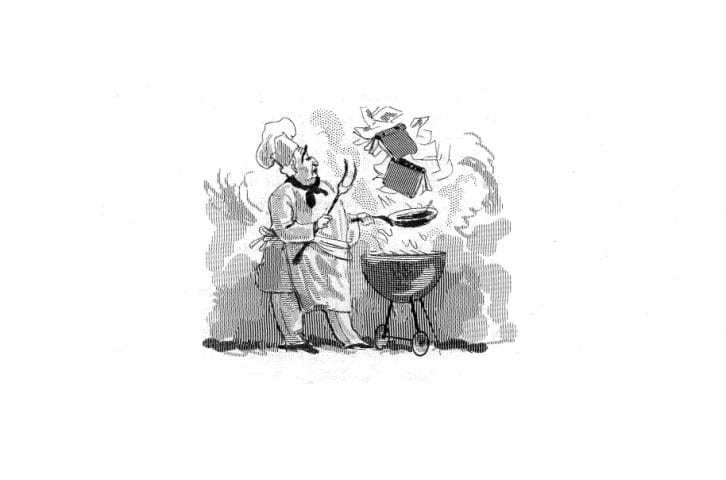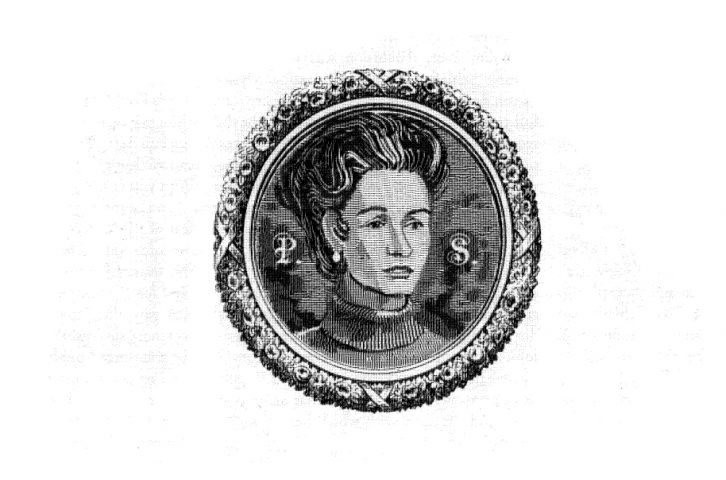Books Reviewed
A review of Female Chauvinist Pigs: Women and the Rise of Raunch Culture, by Ariel Levy
Never judge a book by its cover, but give a good cover its due. It's impossible to ignore the mud-flap girl on the cover of Ariel Levy's eye-opening book, Female Chauvinist Pigs: Women and the Rise of Raunch Culture. There she sits, in all her naked glory, familiar arched back and thrusting breast silhouetted in hot white against a background of lurid pink, leaning come-hitherishly against the title's super-sized "PIGS" in bold black caps. Like the female chauvinist pigs (FCPs) Levy discusses in her book, the mud-flap girl means to entice and amuse her onlookers as she "pimps out" (as the kids say) the vehicle she adorns. Beyond that, she just flaps in the wind and gets splattered with mud.
In the popular culture of America today, Ms. Levy argues, FCPs are women who promote the sexual objectification of other women, and of themselves. But, unlike their truck-driving male counterparts, they believe that in doing so they are emancipating women from the patriarchal male agenda of the past.
As part of their emancipation, these "raunch feminists" want to appropriate to themselves the kind of sexual liberation they believe men have always enjoyed. To this extent, they understand themselves to be rebelling against feminism's tendency towards anti-male, anti-sex prudishness. But as Levy notes, female chauvinist pigs do not generally consider themselves opponents of feminism. They believe that their sexual abandon is the natural conclusion of feminism and the sexual revolution and, more importantly, that it will put the final nail in the coffin of the old "double standard." Levy is not impressed. She wonders whether, by dressing like prostitutes and aggressively seeking sex as a conquest and end in itself, FCPs are emancipating themselves from a "male agenda" or just fulfilling the worst of men's wild desires.
Nevertheless, examples of this kind of feminism abound and are described with astonishing detail by Levy, who threw herself into this study with commendable journalistic gusto. She interviewed everyone from the producers and "stars" ofGirls Gone Wild to old-school feminists like Susan Brownmiller. She absorbed the thinking of high school "hotties," who use sex to achieve social status, and of a particular brand of lesbian dubbed "bois" (pronounced "boys") who pride themselves on the type of masculine promiscuity made famous by the so-called "Spur-Posse" scandal. Of the ins and outs of "raunch culture," it is hard to imagine a more thoroughgoing, entertaining survey.
Levy is at her best when describing how crass and un-erotic the raunch culture is. One of her many examples is Paris Hilton—considered by devotees to be the über-chick, the ultimate in sexy. Hilton once told a Rolling Stone reporter that her boyfriends described her as "sexy but not sexual." Levy notes, "Any fourteen-year-old who has downloaded her sex tapes can tell you that Hilton looks excited when she is posing for the camera, bored when she is engaged in actual sex."
But despite her clear-eyed insights, Levy can't quite bring herself to indict feminism for its role in all this. Too much seems to be at stake for her: her politics, her upbringing in a family of feminists, her education at Wesleyan, her firm—almost quaint and precious—belief in the natural irrelevance of gender difference. All these seem to inhibit her drawing the conclusions to which her research and arguments naturally point. Instead of condemning feminism and the sexual revolution for what they have wrought, she insists that they have been misunderstood by "raunch feminists." Although the FCP may think she is upholding the one true Feminism, Levy argues she is actually tearing down the sisterhood that supports her.
To Levy FCPs are "Uncle Toms" who have sold out to "get theirs." FCPs are certainly getting theirs (and maybe a few other people's), but there is nothing inconsistent in their feminist thinking on the matter. Feminism exalts the masculine over the feminine. It always has. The "sisterhood" was conjured up precisely to empower the united sisters to scale the citadels of patriarchy, demanding the right to do what men do and to be treated like men. And they succeeded. So now what? In a post-feminist world, why should liberated, masculinized women stick around to boost the morale of a bunch of "girly-girls" talking about their "sisterhood" and sentimentalizing the good old days? With their "raunch" and other hyper-macho strutting, the FCPs are doing just what their feminist grandmothers taught them to do—bursting the shackles of constructed femininity, asserting their existential freedom to have it all. Yes, they are "getting theirs," and consistent, unblushing feminists will celebrate them for it.
Levy laments that when she first noticed this trend among her friends and associates, she "tried to get with the program, but [she] could never make the argument add up in [her] head." She thinks that her aversion to raunch stems from her understanding of true feminism. It doesn't. But it's at least possible that it stems from a nascent understanding of true femininity. If so, her sensible aversion to the FCPs' debased, and debasing, behavior could be an opening for a fruitful dialogue about natural and conventional sex differences. Unfortunately, she shies away from inquiring into the politics or principles of any serious person with whom she thinks she disagrees. She reserves all her venom and vitriol—not for the egregious female chauvinist pigs so vividly described in the book, but for George W. Bush, the Religious Right, and abstinence-only education. She actually has some interesting things to say about abstinence-only education, but her observations are marred by a cartoonish caricature of its advocates.
Still, she proves herself a voice worth listening to, and this book certainly won't be her last. If you have a young daughter, as I do, you have a duty to read it. Levy is right about this much: raunch culture is not a sign of the moral progress we have made, but of how far we have left to go.



